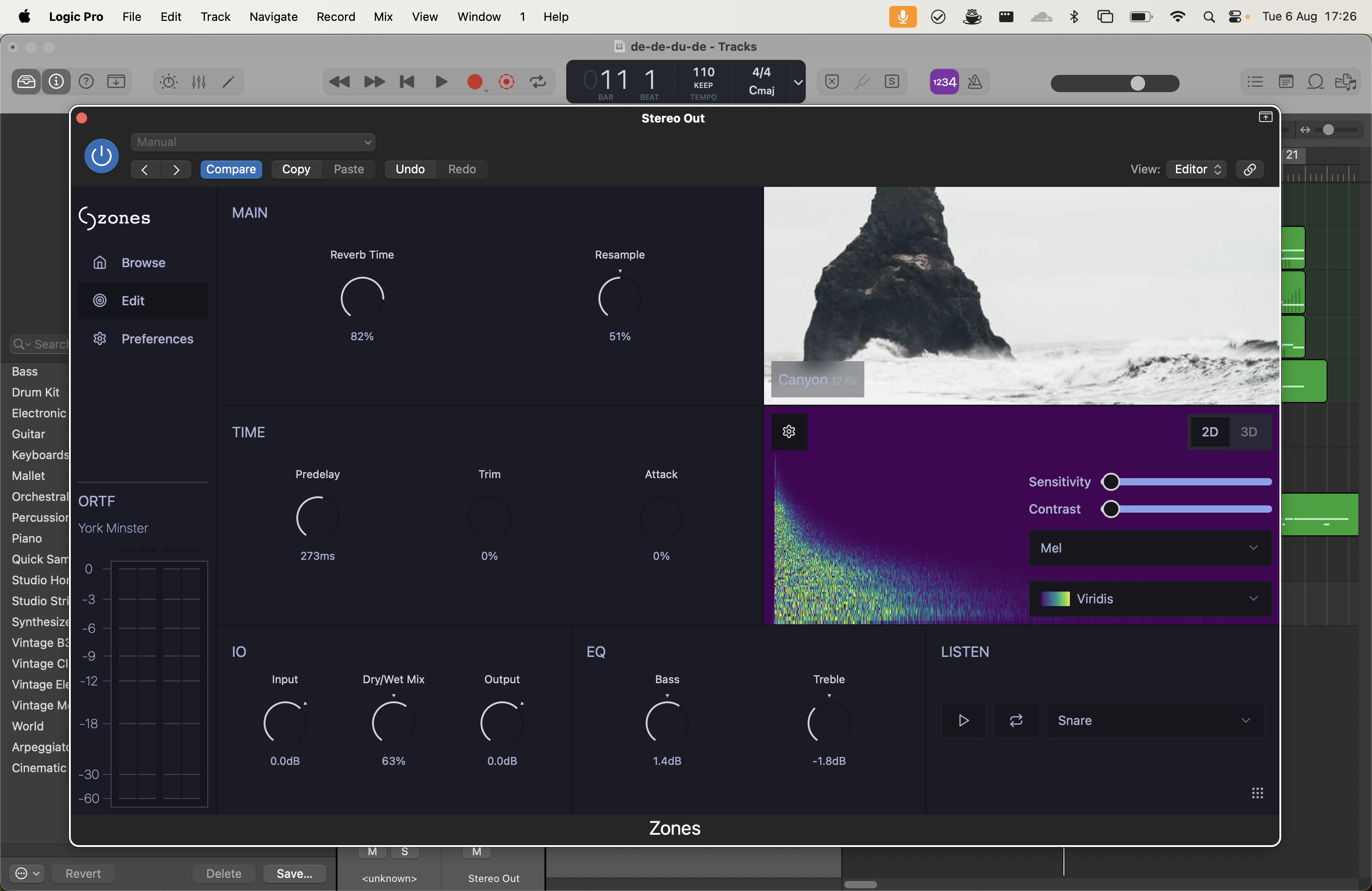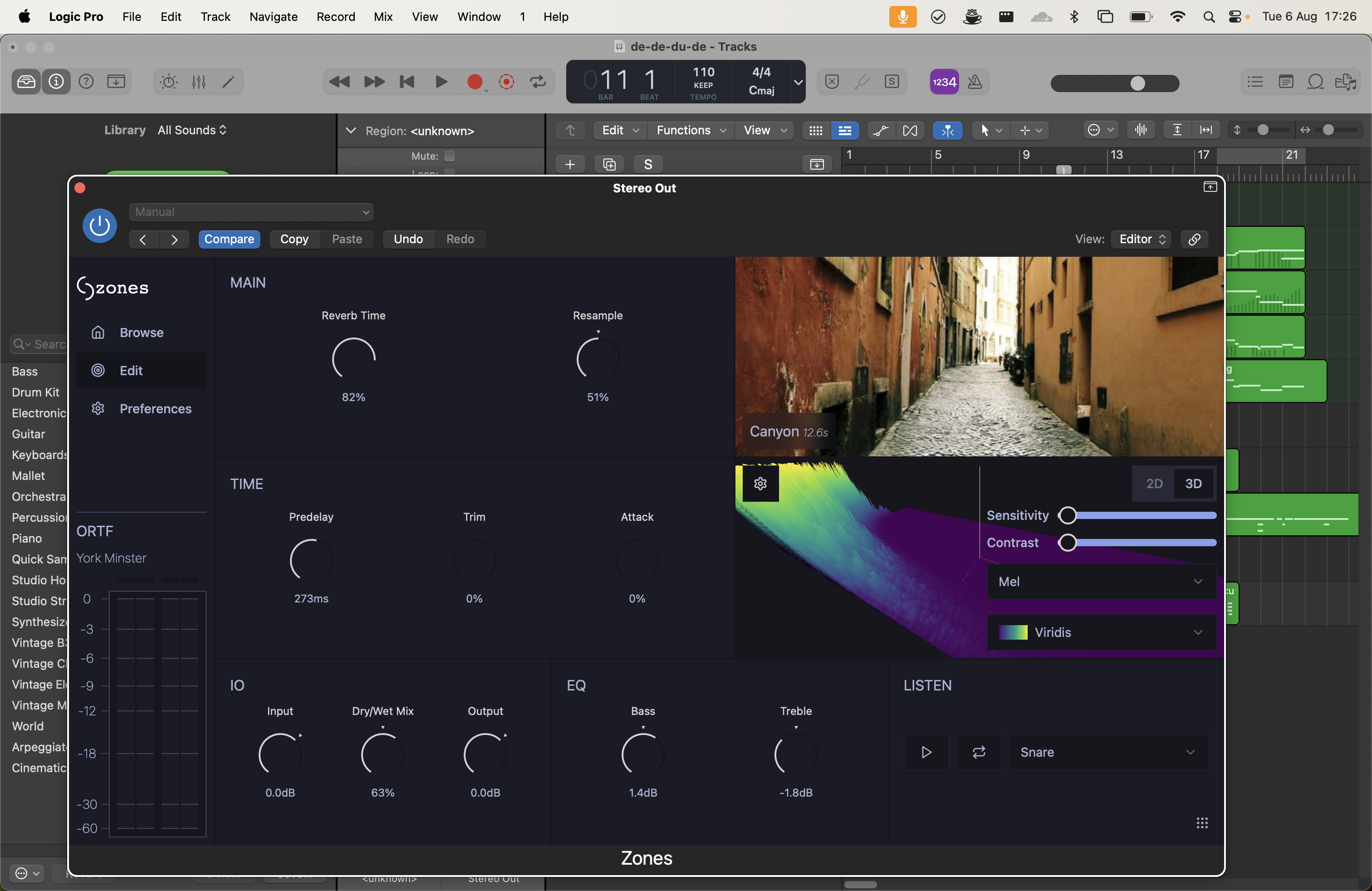This post is under construction*
Zones Convolution - Spaces On Demand
Zones convolution allows users to find and share impulse responses captured in great sounding and unique spaces. Inspired by the Open Air library and the popular Altiverb plugin, Zones extends their capabilities by providing; a simple, intuitive interface to tag, categorise and upload IRs, and a VST/AU plugin to search and convolve these IRs directly in the box!
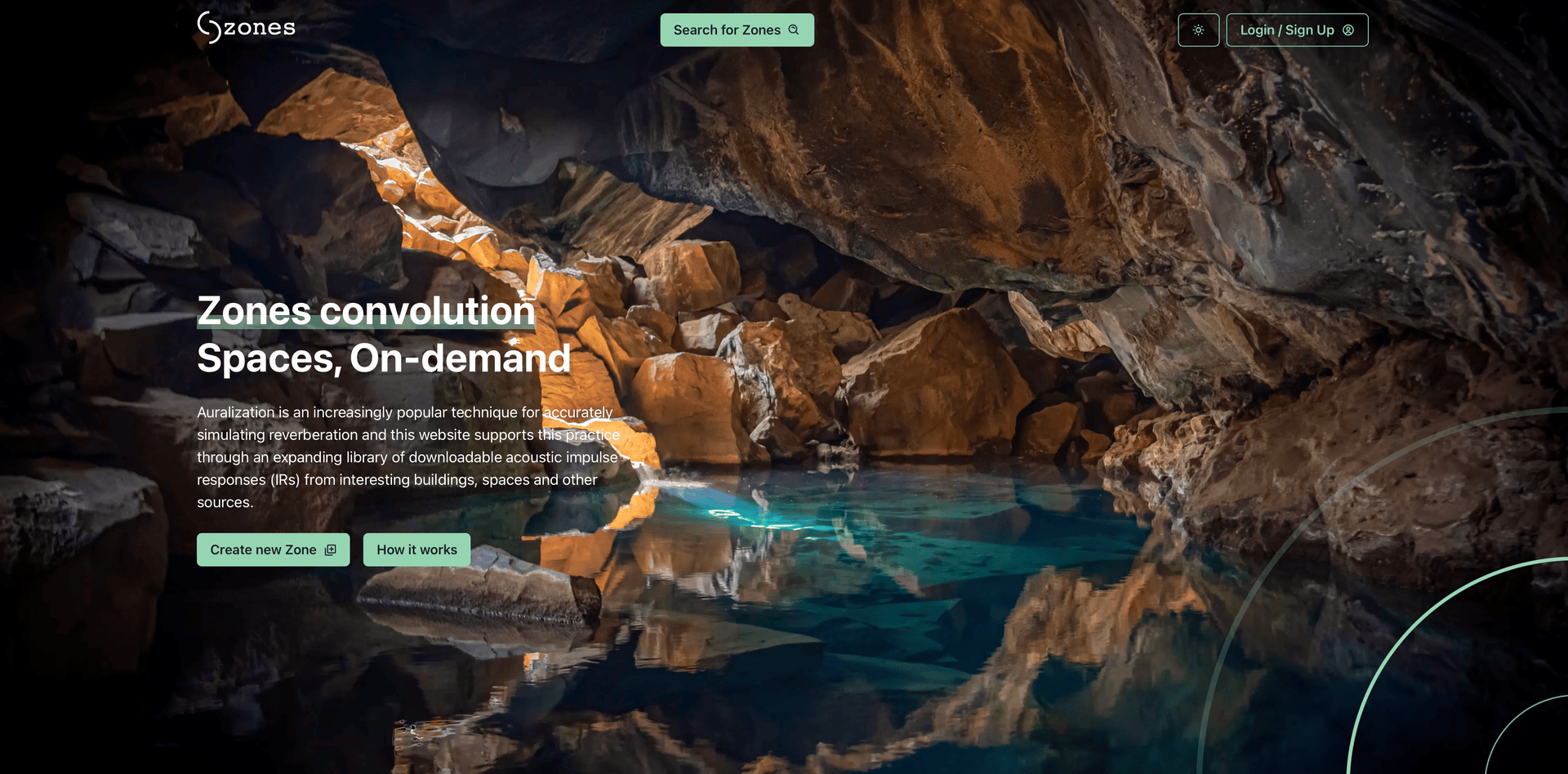
This article aims to showcase some of the features, design and implementation detail of the platform in it's current state and is split into three parts, Zones Convolver, Zones Web and Zones Client.
Zone Convolver
Though a number of open source implementations for convolution do currently exist for example in the JUCE library. For Zones, we wanted to create a convolution library, particularly suited to larger filters, able to run in a single thread, more appropriate for the model of audio plug-ins.
Convolution library used in the upcoming Zones Convolution plugin. Implements a non-uniform partitioned convolution (NUPC) scheme with modified Garcia optimal partitioning and time distributed transforms. This is able to run on a single thread without large spikes in load for variable block sizes without additional latency.
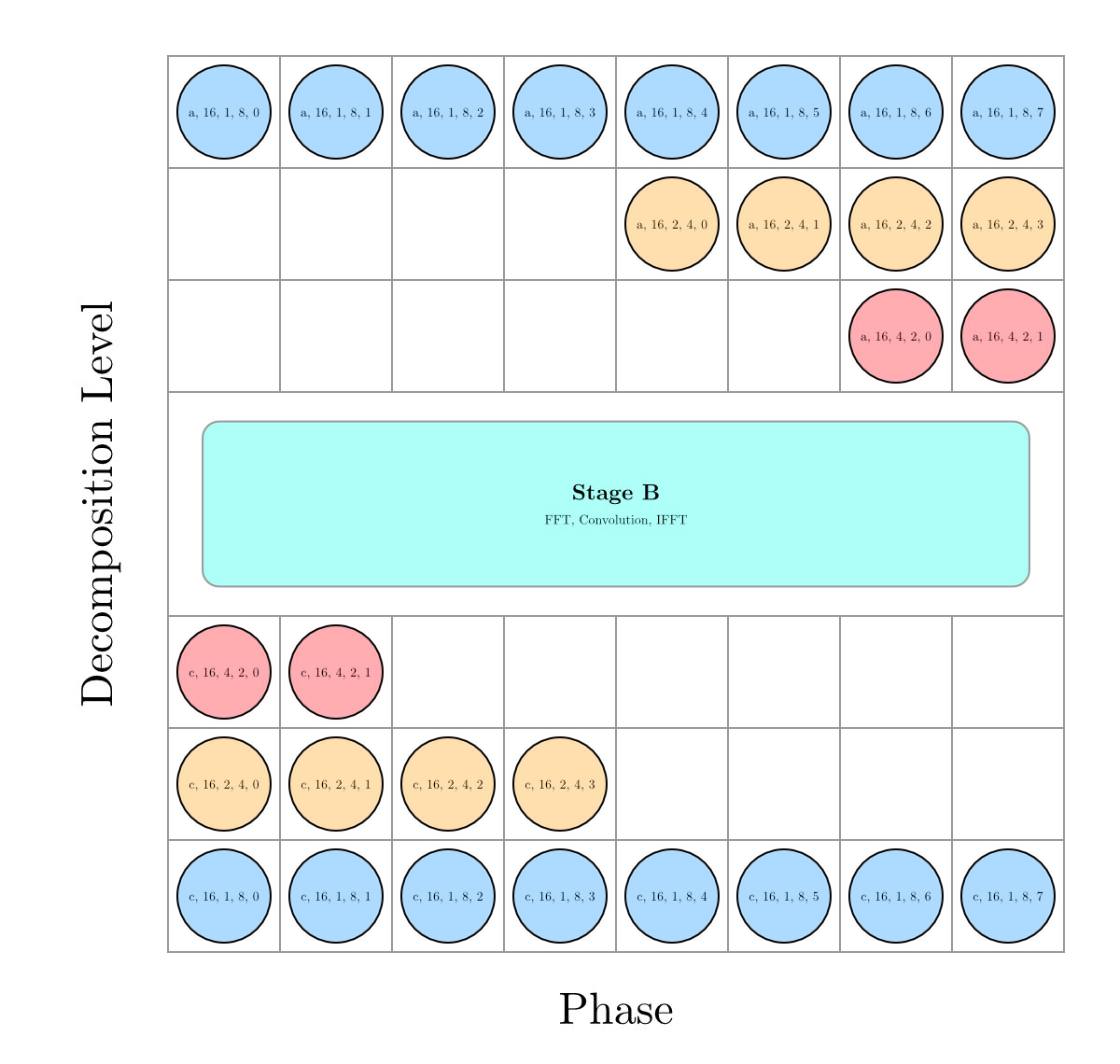
The library is open source and available on GitHub, Zones Convolver. A more thorough explanation of the library detailing its implementation and theory is also made available, Zones Convolver Documentation.
Zones Web
Zones web forms the backend of the platform, dashboard (used to edit and upload Zones/IRs) and in-browser client allowing users to search, convolve and download IRs. This was built using NextJS, AWS Lambda, S3 and DynamoDB. Finally, Algolia is used for search.
A pre-release version of the platform is available at, Zones Convolution, some features are not yet public facing.
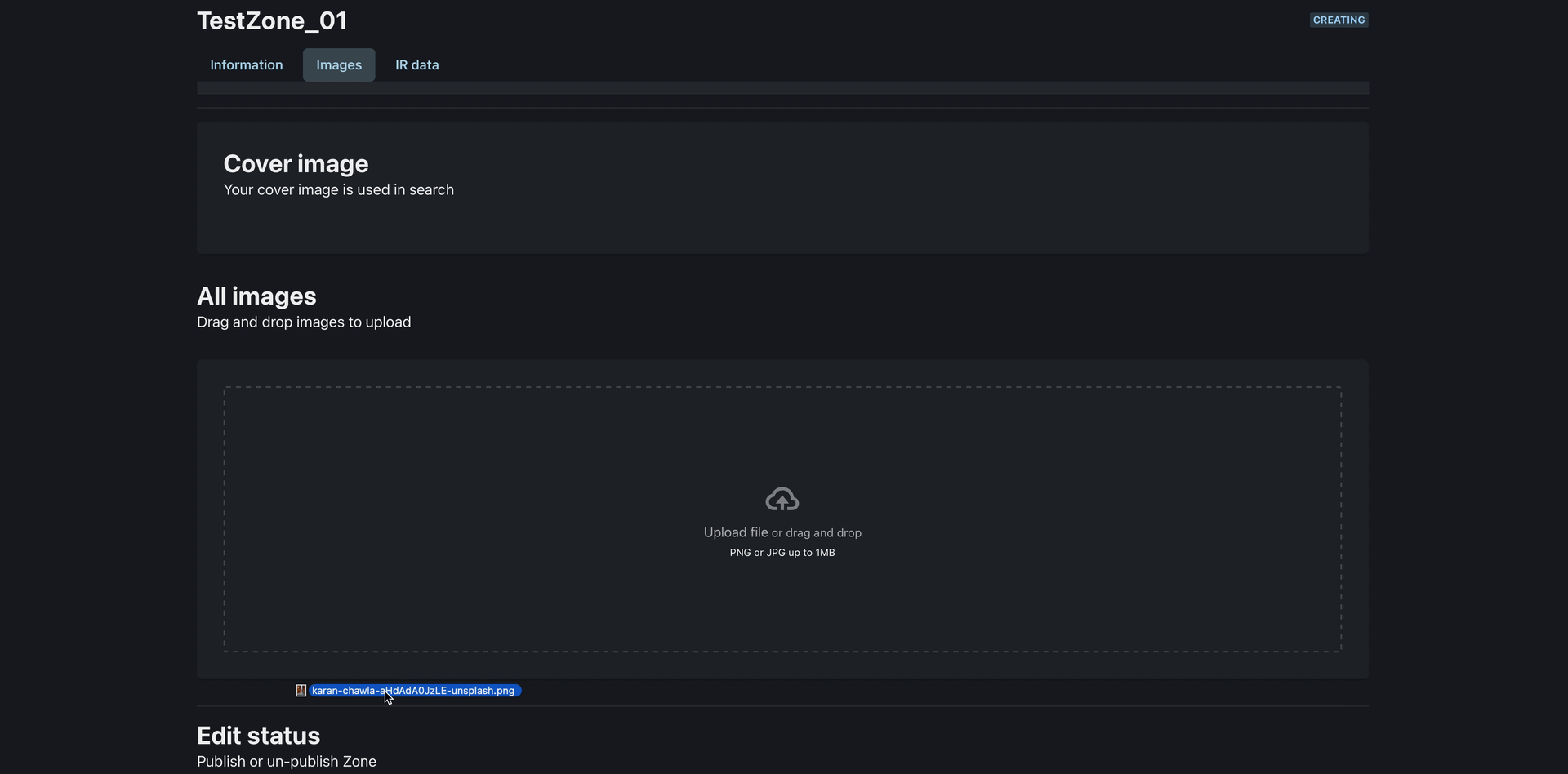
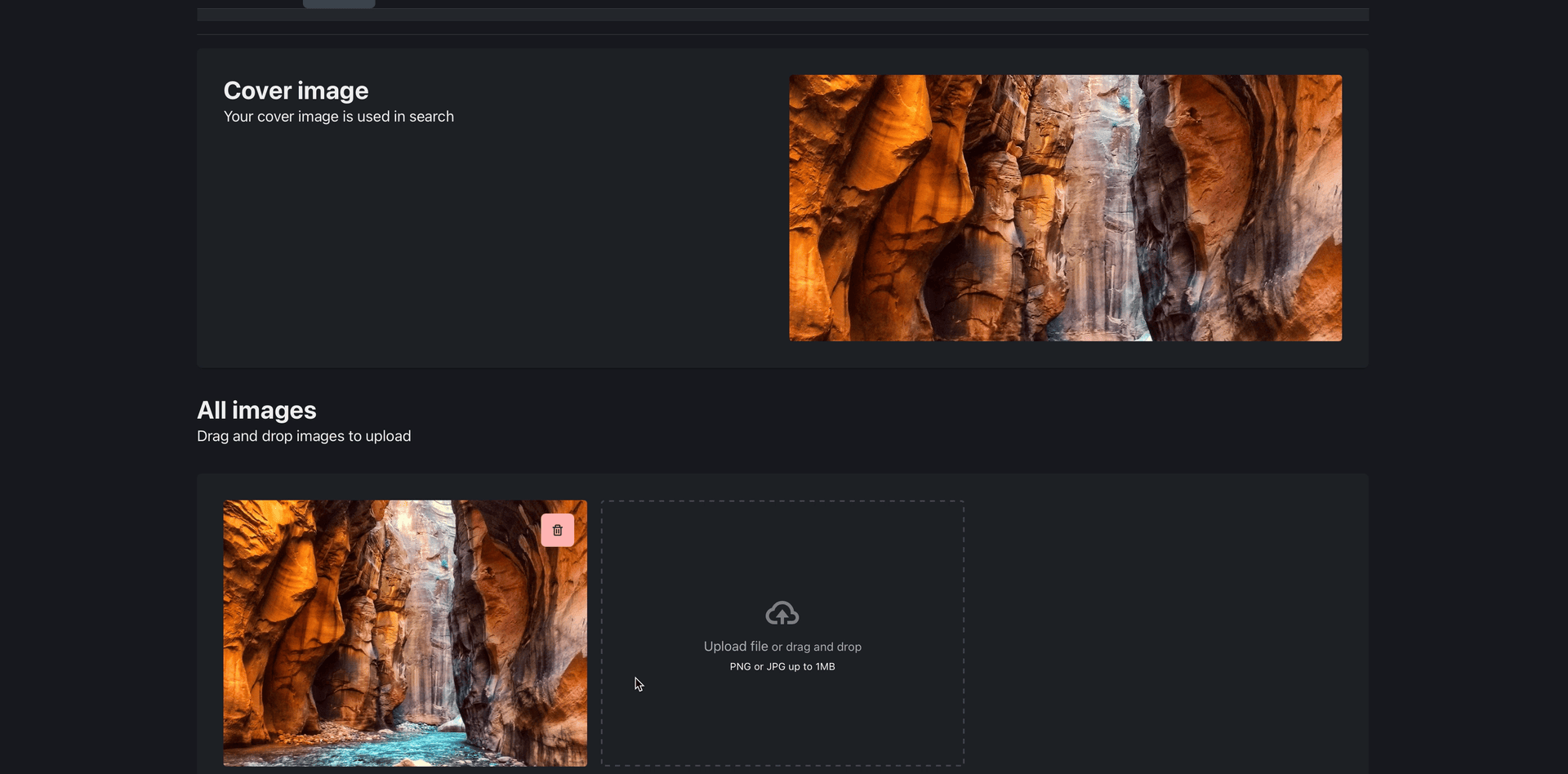
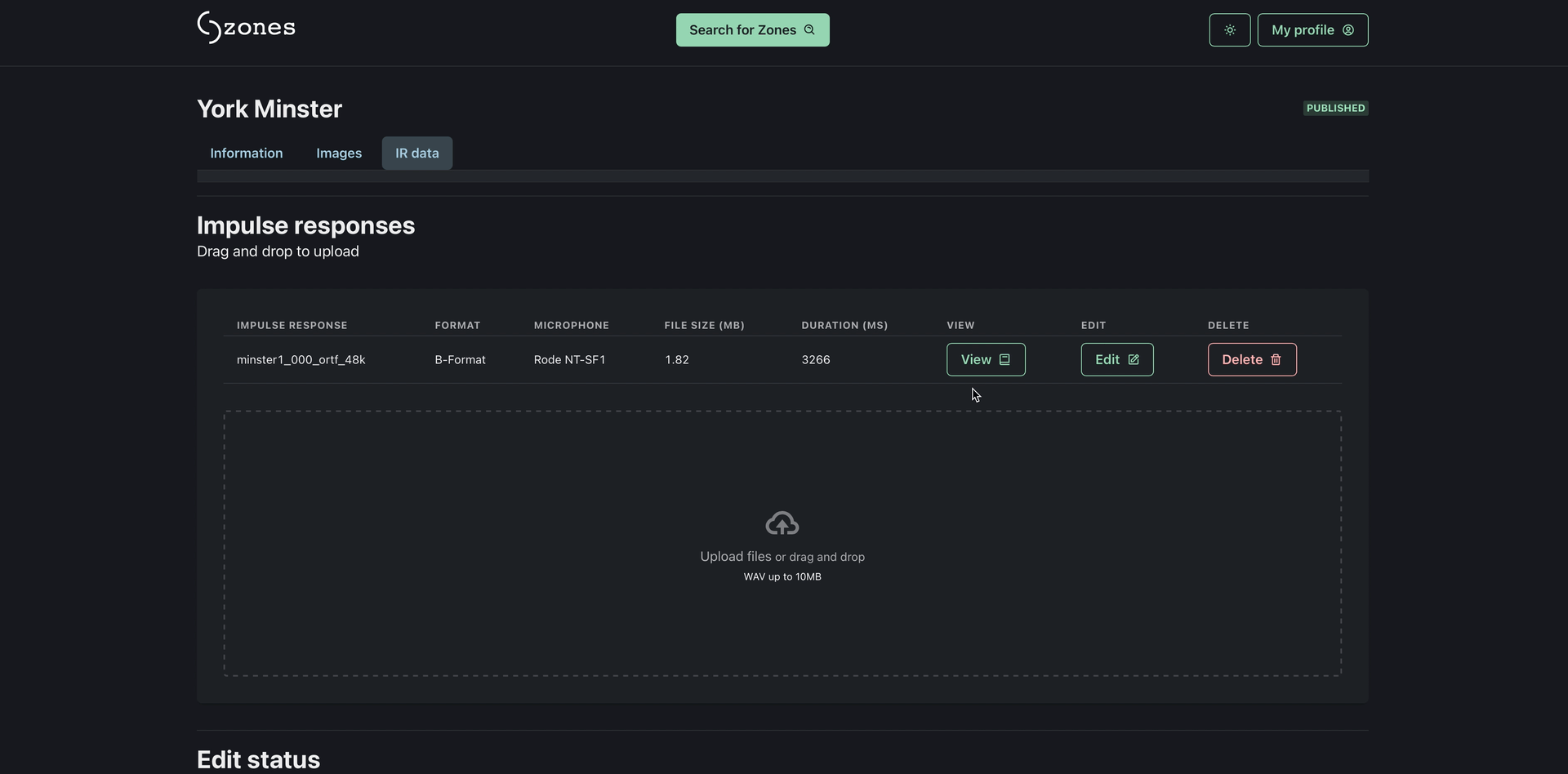
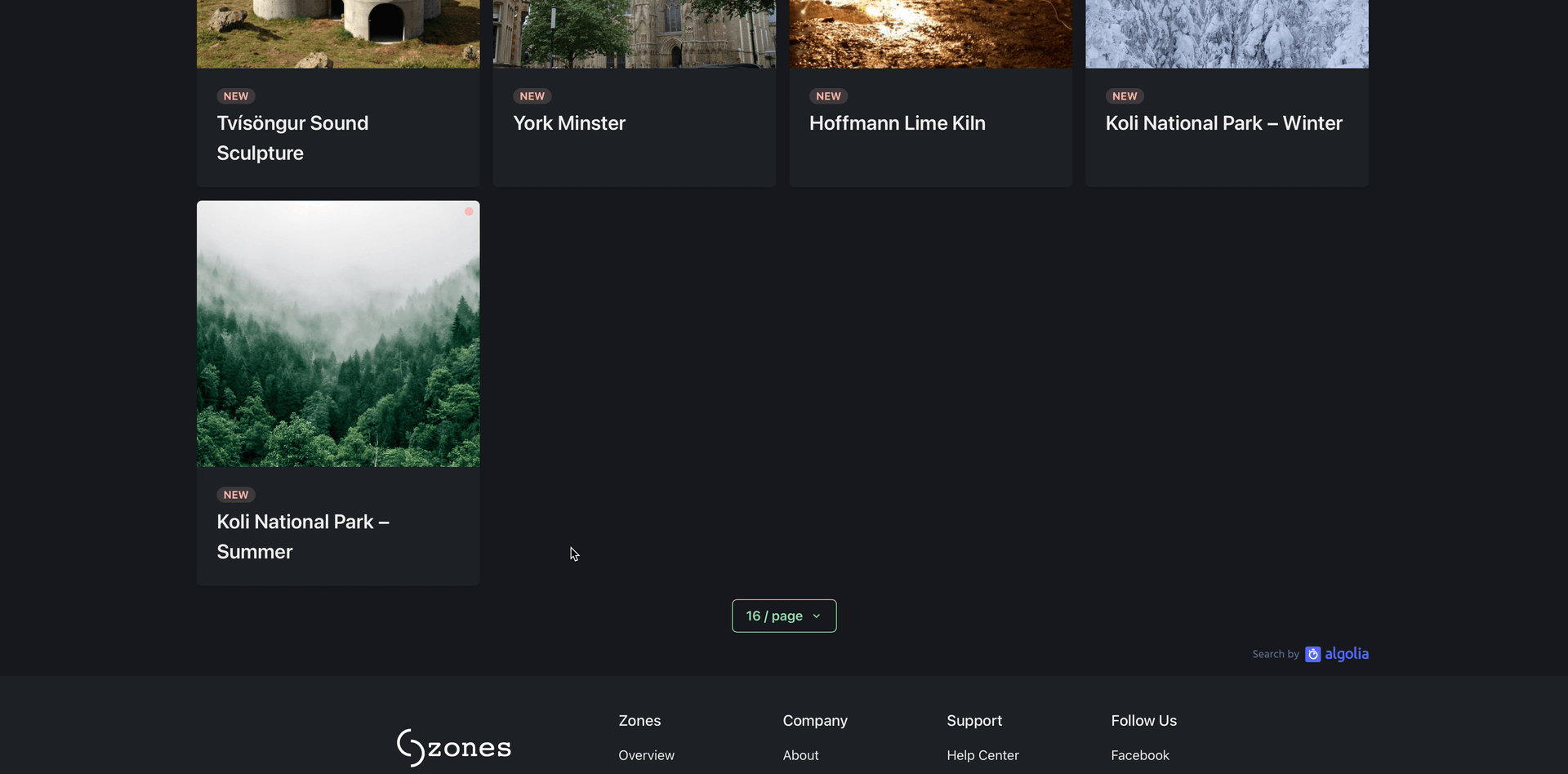
Zones Client
Zones client makes use of both the Convolver and Web projects, bringing them together into a single audio plugin. This project is built in C++ using the JUCE framework and incorporates an in DAW IR search engine (the browser), IR Engine to perform offline manipulations to IRs for example applying artificial reverberation to aid brightness or time-stretching to increase the reverb tail, 3D waterfall graph written in OpenGL to view IRs as they are modified and numerous different channel format support.
